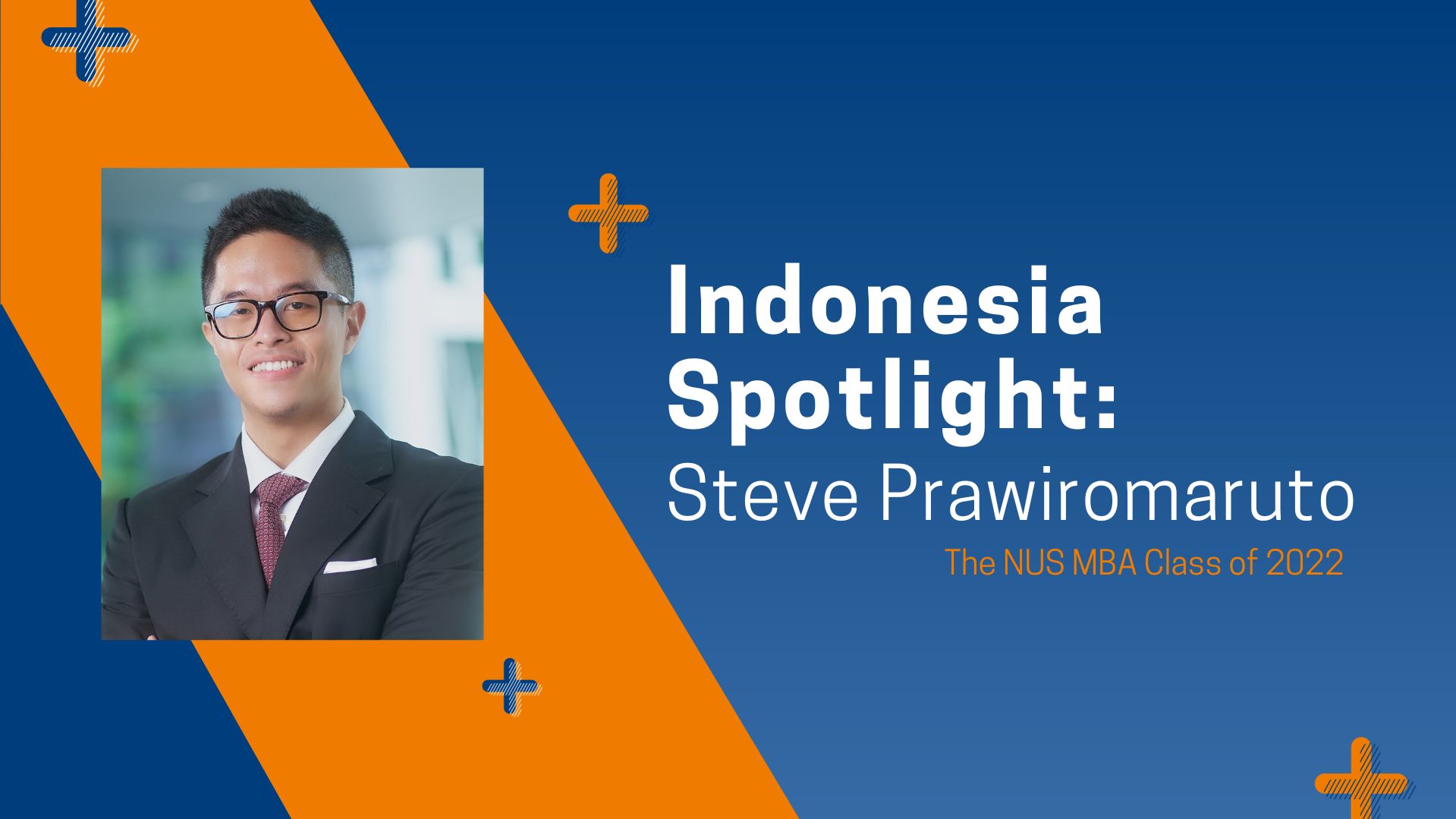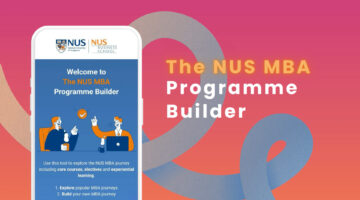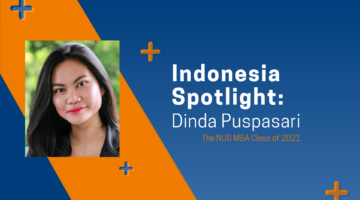NUS MBA Indonesia Spotlight: Steve Prawiromaruto
|
|
Steve Prawiromaruto
|
Describe what you were doing before embarking on your MBA.
Before my MBA, I was working in the tech industry in Jakarta, Indonesia, for Tokopedia and GoJek (now merged into GoTo Group). My roles mainly revolved around commercial and product strategy for a variety of verticals covering payments, e-commerce, food delivery and digital advertising. Interestingly, my undergrad was in International Relations, which had nothing to do with tech!
What are you doing now?
I am now a Product Strategy Manager in Grab, still in Jakarta, covering the Logistics vertical. So I’ve had the privilege of being able to work for these two rival tech giants and to experience the companies through different eras in their lifecycle.
What was your NUS MBA journey like in terms of the resources and opportunities that you took part in?
I definitely tried to make the most of my MBA, and got involved in as many things as I could, which ended up making the journey extremely fruitful. I led the NUS MBA Technology Club as President where I was able to engage several amazing figures in the tech sector in Singapore, and collaborated with them in hosting events to enrich my classmates’ knowledge of the industry. One of these engagements even helped me secure an internship with Google’s Singapore office, and the work experience as well as the Google office site visit I organised afterwards are some of the most unforgettable experiences I’ve ever had.
As someone who didn’t study business at undergrad, I found the core courses extremely useful in building up my business fundamentals and applying them in the workplace. Electives, case competitions and consulting projects also helped further enrich my knowledge and skills and gave me a more global and holistic perspective on how to do business. My peers, of course, also played a key part in my learning and even now after the programme is over, I consider them to be precious lifelong friends.
How did the NUS MBA help with your career development?
NUS has a strong alumni network that covers various industries and professional interests, as well as strong partnerships with both big brand names and emerging companies. However, I also believe that the value of these opportunities is in what you make of them. Through my involvement with the Technology Club, I had a sort of “VIP access” to engage with these alumni and corporate partners, and BizCareers also often engaged me to help lead or facilitate events in collaboration with them. It was through these engagements, that these alumni and companies became more than just a name on a list for me to network with or a company I have to apply to, they became genuine friends and partners for me to collaborate and establish strong relationships with. To me, establishing these genuine relationships should be the main goal, and the career development opportunities and learning will come with that.
Comparing your current self (post-MBA) to your previous self (pre-MBA), in what ways do you feel that you’ve changed?
During my high school and undergraduate studies, I was not the type to get involved in any school related organisations or events, let alone the student council. However, I embraced and took on this challenge during the MBA. Campaigning to get votes and event planning felt weird to me in the beginning, but in the end, they ended up being extremely rewarding. So, definitely my mindset in terms of “getting involved” and taking up leadership positions has definitely changed to being more positive, as long as the purpose and value is clear and the main objective is to serve your community and not yourself.
Would you have done your NUS MBA any differently?
I wouldn’t really change anything as I believe even the mistakes I made are just part of the journey and shape who I am today. But if I were to reflect further, I did feel that at times part of the motivation for me to be involved in so many things was because I bought into the notion that “busier is better” in an MBA. It’s not always the case, and people have different journeys and capacities. Do what’s best for you, and your peers being “busier” than you does not necessarily mean that they are doing better.
Many MBA aspirants feel that the NUS MBA is academically challenging. What do you think?
For context, I took a non-business degree during my undergraduate studies, mainly because I was making a decision based on interests instead of career prospects. However, another reason is because I was scared of math and didn’t want to deal with all the math I would need to do with a business degree. Hence, of course going into the MBA, the more quantitative classes like Finance and Accounting were extremely challenging for me, and the academic rigour was really felt especially while I was still trying to settle in during the first semester. However, again the fact that I wasn’t a business major meant that the knowledge from these core classes is new and hence more valuable to me, and I found all the classes challenged me intellectually in different ways. Quantitative-focused or technical classes pushed me out of my comfort zone to learn new hard skills, while more case-based classes helped expand my horizon of the world and learn new ideas that can be applied in the workplace.
Of course, academics are only part of it and NUS also provides many valuable experiential learning opportunities through consulting projects, internships and global exchanges – these I feel overall form a holistic learning experience. My MBA Consulting Project was with Bosch, where we conducted some analysis on EV battery business models in Asia, which was an extremely valuable experience and allowed me to learn about this growing EV sector and the push for sustainability.
As an Indonesian student/alum, what would be your advice to other Indonesians who are considering the NUS MBA?
If you plan to be based in Asia or even just do business in Asia, Singapore is a key destination to be in and NUS does an amazing job in facilitating your learning and exposure. It really is where East meets West, and you will obtain a global perspective, but then also learn how it can be applied at a regional or local level. The programme provided a holistic education and a valuable learning experience for me, and I’m confident it can do the same for other Indonesians. Also, as a bonus, you can go home and back pretty easily 🙂
Do you have any tips or advice to share on the application process, or on getting the most out of the NUS MBA experience?
Know yourself and have a rough idea of how the programme fits into your goals, and articulate how your background and experiences can help enrich the cohort as well. In the programme, keep an open mind and be proactive in getting involved in clubs, activities and networks that align with your passions and aspirations, or ones that can give you the exposure to figure out what those aspirations are. Also, have fun and establish intentional genuine relationships; jobs/careers change but close relationships are ones you carry for your entire lifetime.



